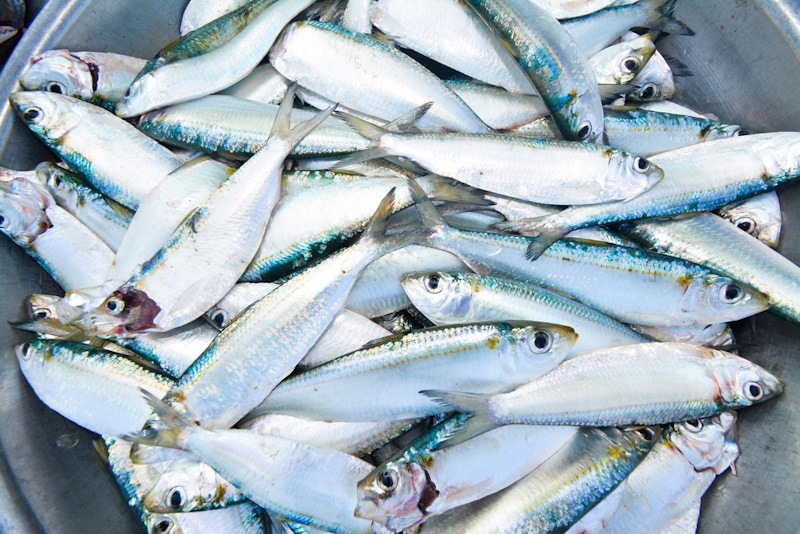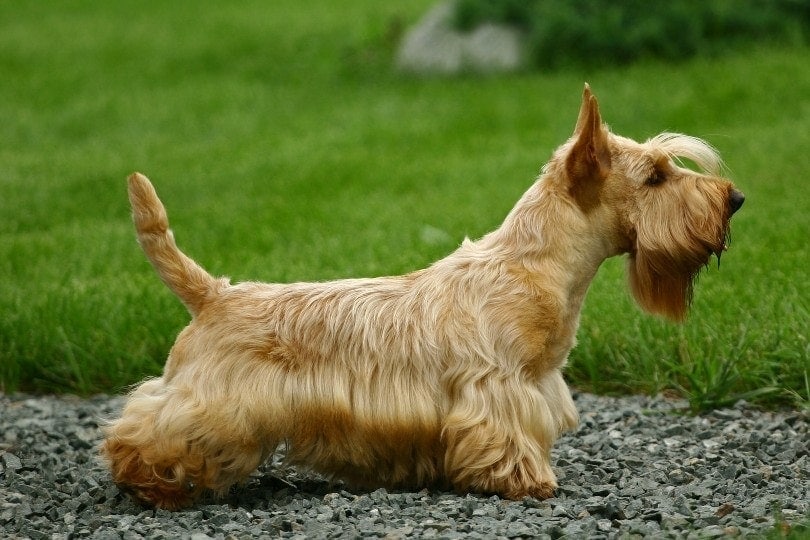How Much Do Newfoundland Dogs Drool? Breed Facts & FAQ

Updated on
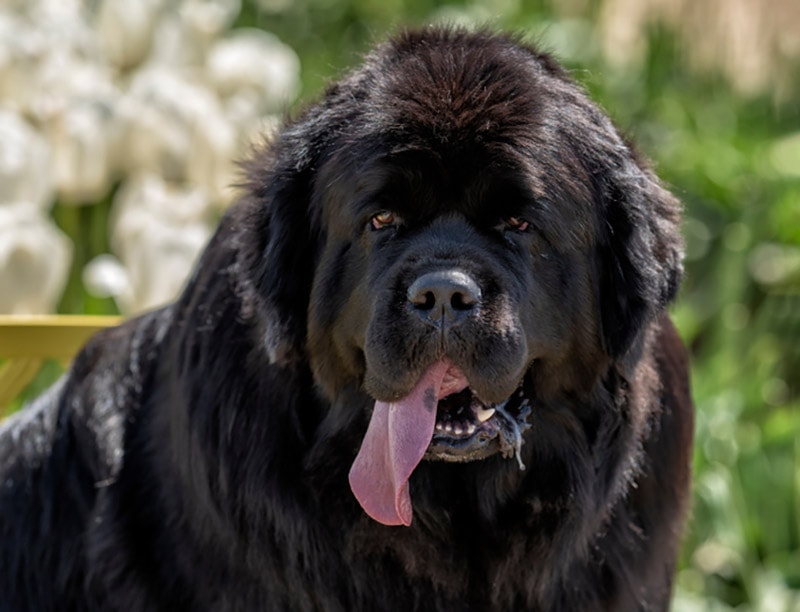
Click to Skip Ahead
Newfoundland dogs, often known as “Newfies,” are enormous and one of the friendliest and most docile breeds. They are recognized and adored for their goofy faces but are also famous for excessive drooling. Every dog drools occasionally, but some breeds, like the Newfoundland, drool far more often. In this article, we’ll discuss why the Newfoundland drools, how much they drool, and how you can turn the mess into less.
How Much Do Newfoundland Dogs Drool?
The Newfoundland is known for its drooling and is listed as one of the top 10 breeds that drool the most. However, each dog is unique, and some Newfies may drool more than others, but it is almost certain that you will spend your days with your companion wiping and washing drool off most things it comes into contact with.
The frequency of their drooling may also vary depending on what is causing it. Naturally, they are usually seen with a string of slobber hanging onto the corner of their mouth, but there may be more drool in some instances. Some Newfies only drool when begging or drinking water or when they are hot or excited.
When a Newfie feels hot, it will pant, which will undoubtedly lead to more drooling, so you may notice your dog drooling a lot more in warmer weather, especially when it is also drinking more water. They drool for different reasons, and while some will only carry around a single slobber string, others will have their own personal Niagara Falls!
Why Do Newfoundland Dogs Drool?
The reason Newfies drool often is because of the design of their mouth. They have large jowls and loose lips, and the corners of their mouth where saliva or water collects tend to turn down, causing it to spill or drool. On the contrary, dogs not known to drool don’t have loose lips, so the saliva will go down their throat.
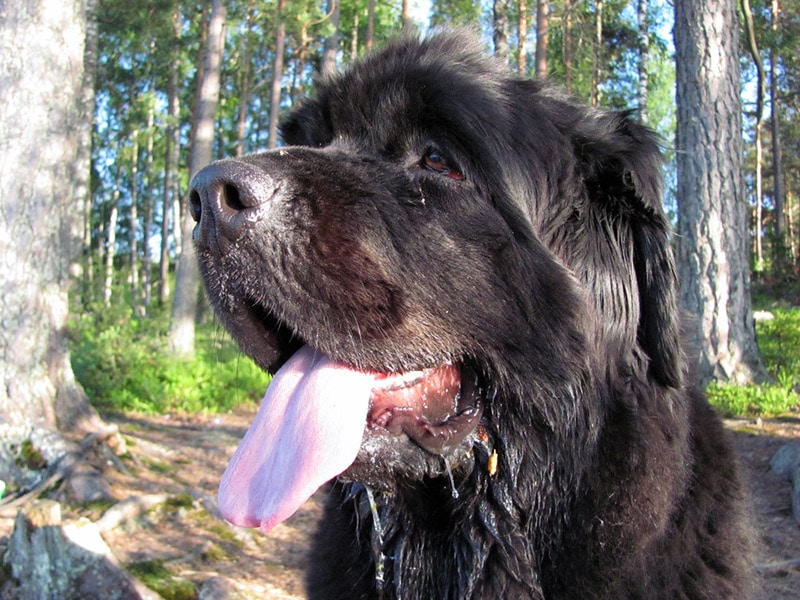
Behavior and Environmental Factors
However, not all Newfoundlands drool the same. Some may drool like fountains, while others have a few drips and strings of drool. Certain occasions may cause a Newfie to drool more or make it more likely to drool. These may include excitement, begging, hot temperatures, and eating and drinking.
You can imagine an excited dog that can’t hold its saliva adequately has a more relaxed face and is also possibly barking and is likelier to drool. The universal sign for a hungry mammal is drooling. When they are begging, they are drooling, no question about it. They are also messy drinkers. But can you blame them? With their large jowls and loose lips, it is common to see excessive drooling when a Newfie drinks.
Medical Issues
Of course, excessive drooling may indicate underlying medical conditions such as dental problems, GI issues, or nausea. It’s important to learn how much your Newfie usually drools and what causes it to drool a little more so that you can determine when and if your Newfie is drooling more than usual.
It is also interesting to note that Newfies won’t begin drooling until 1 year of age; some only start drooling long after their first year.
Can I Stop My Newfoundland Dog from Drooling?
Unfortunately, the answer is no. You can’t stop your Newfie from drooling, but there are things you can do to reduce the amount of mess that comes from your dog’s drool. A dog bib or bandana is the most common method of reducing drool pools. It can keep your floor and your dog’s chest dry, plus it looks super cute! As soon as you see drooling, clean its mouth, chin, and chest. Otherwise, it will become the ideal environment for yeast and germs to develop. Also, have a stockpile of dry towels available for the same reason.
Put a towel or rug around your Newfies drinking bowl, wipe its face before you go in for cuddles, and consider covering your furniture with throws that can be replaced often.
You can also speak to your vet about solutions or remedies that may help.
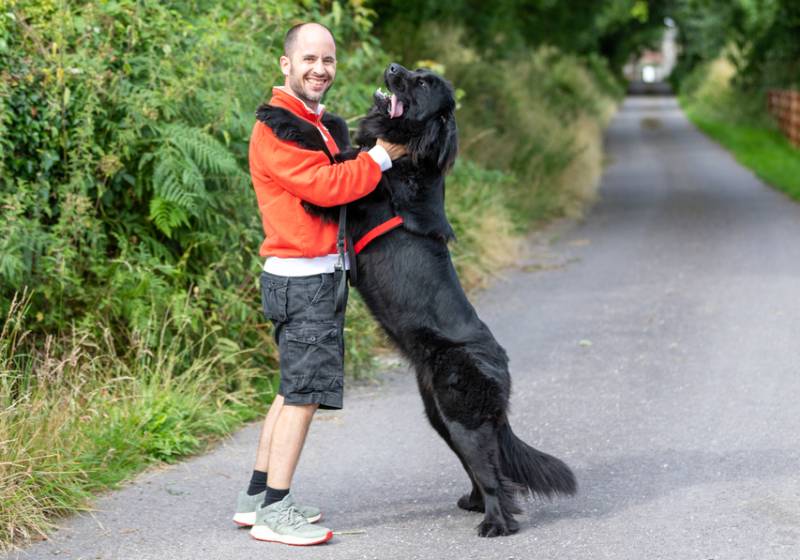
Caring for a Newfoundland
Despite their slobbery kisses, Newfies are affectionate, calm, loving, and wonderful pets. If you are considering owning a Newfoundland, here are some tips for keeping it healthy and happy.
- As we mentioned before, keep its chest dry from drool to avoid developing bacteria.
- Feed your Newfie a high-quality, well-balanced diet that is life-stage appropriate.
- Ensure your Newfie always has access to clean, fresh water.
- Omega-3 fatty acids are beneficial to Newfies when added to their diets. Fish oil, some carefully prepared dog meals, and skin and joint supplements include omega-3 fatty acids.
- Ensure your Newfie goes for yearly check-ups to ensure it is healthy and thriving.
- Ensure your Newfie gets early training and socialization, and continue with it as your dog gets older.
- Provide mentally stimulating activities for your Newfie daily. These can include puzzle feeders, nose work, and playtime.
- Make sure your dog is getting enough exercise every day so that it doesn’t have any pent-up energy and becomes is destructive.
- Take your Newfie to the groomer routinely to get bathed and checked for any fleas or injuries.
- Brush your dog’s teeth at least every other day.
- Provide your Newfie with attention, care, and love every day.
Conclusion
Newfoundland drool often because of the anatomy of their mouth, so while some may drool just a little, others can drool excessively. However, you won’t meet a Newfie that does not drool at all. Newfies are known to drool more when they are hot, begging, eating, or drinking, and while you cannot stop the drooling altogether, you can help reduce the mess. A dog bib usually does the trick to prevent drool pools around your home, but as for sloppy kisses, those just go hand in hand with owning a Newfie.
Featured Image Credit: KelvinW, Shutterstock



